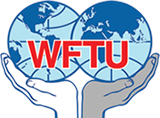



Today more than 1 billion people, or approximately 15% of the world’s population, live with some form of disability, while 80% of them live in developing countries. We can all understand how difficult life for those persons and their families is, since in most cases they cannot find a job, or in heavy cases they cannot even take care of themselves.
In developing countries, 80% to 90% of persons with disabilities of working age are unemployed; whereas in industrialized countries the figure is between 50% and 70%. Also, globally, a large percentage of those persons are disabled because of an accident, injury or illness at work.
As far as children are concerned, around 240 million disabled children around the world are 50% more likely to have never attended school than children without disabilities.
The COVID-19 pandemic further affected the lives of people with special needs. A high number of COVID-19 deaths among disabled people was reported in several countries. In many cases, they had their treatment canceled or delayed.
The United Nations claims to make efforts to promote the rights and well-being of the people with special needs. However, their situation remains difficult due to lack of strong public health systems to cover all their health needs with proper medical attendance, lack of adequate public special schools and rehabilitation centers for the education and inclusion of people with special needs, lack of adequate funding for all their needs, lack of public and free accommodation centers for the heavily disabled and chronically ill, lack of sufficient health and safety measures at workplaces.
The above could and should be priorities of all States and governments, in order to protect the health and life of the most vulnerable ones.
However, in the prevailing system of exploitation, the above are a cost that does not find a place in the States’ budget. Instead, the idea of individual responsibility of disabled persons and their families to take care of their needs is being systematically promoted so that governments can get rid of their own responsibilities. And in such societies indifference and discriminations against people with special needs keep existing and even flare up.
The World Federation of Trade Unions calls on workers all over the world to strengthen our struggle for the protection and improvement of living conditions of persons with disabilities.
We reiterate our militant demands: prevention of the disabilities; access to free, public and high quality health and rehabilitation services for people with disabilities; their access to education; creation of public and adequate accommodation centers; creation of the necessary infrastructure for their movement and transportation; employment for all persons with disabilities who are able to work; and assurance of a dignified life.
In its ongoing genocidal campaign against the Palestinian people, Israel used drones May 2 to…
Palestinian and regional factions condemned the Israel Occupation Forces’ attack today on the Al-Dameer (Conscience)…
A message for May Day: ‘Workers of the world unite, Palestine is our fight!’ International…
Africa is rising, the days of colonialism are finished: This is the call being echoed…
Several immigrant groups and their supporters rallied outside the federal courthouse in Philadelphia on May…
Thousands of construction workers and teachers in at least seven provinces throughout Panamá took to…